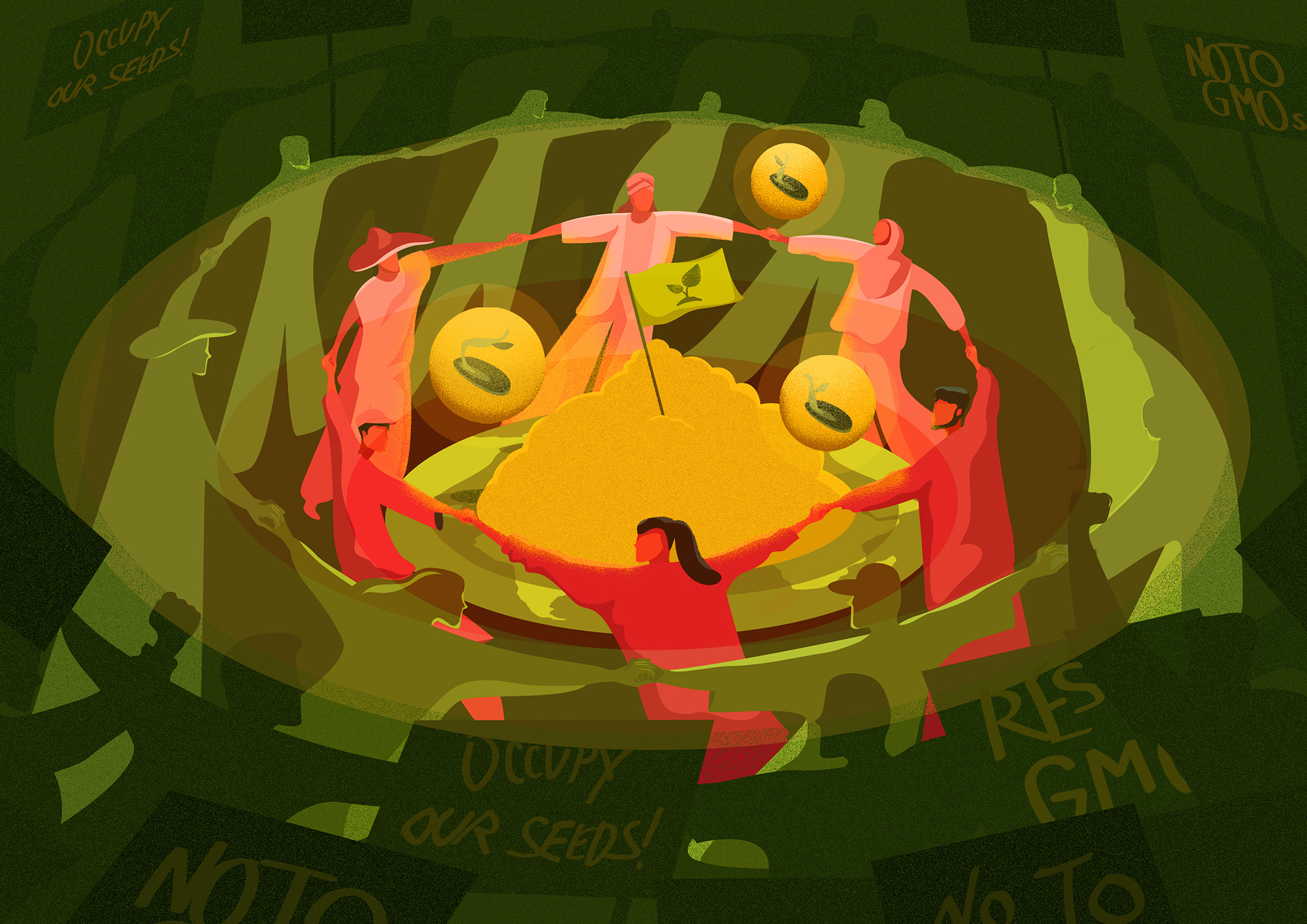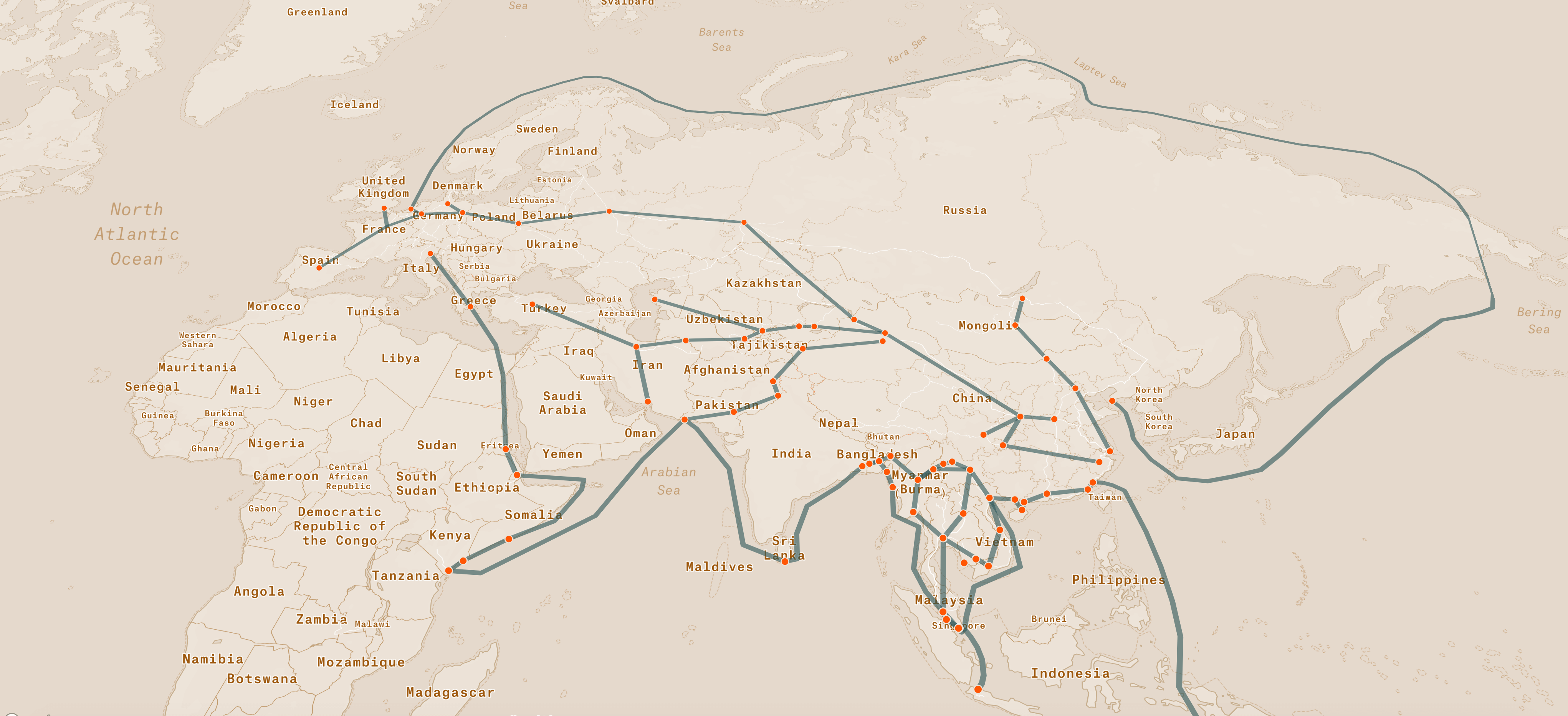
Why is naming Jerusalem the capital of Israel problematic?
by Pei Ying Loh
In early December 2017, President Donald Trump controversially announced that he has “determined that it is time to officially recognise Jerusalem as the capital of Israel”. His declaration sparked severe backlash from all over the globe. In West Bank and East Jerusalem, thousands of Palestinians took to the streets to demonstrate against Trump’s decision. Then, in the end of December, the United Nations gathered to back a resolution that called on the US to withdraw it’s recognition of Jerusalem as the capital of Israel. It was passed with 128 states voting for, 35 abstaining, and nine against.
UN Resolution on Jerusalem calling for US's withdrawal of recognition of Jerusalem as the capital of Israel
Jerusalem is part of a larger, and long-standing conflict between Israel and Palestine. Many believe that the conflict goes back to ancient times, and is about religious differences. However, it really only began about a century ago. Before the First World War, the city had been largely under the Ottoman Empire since the early 16th century. Under Ottoman rule, followers of different religions lived largely in peace, including Jews, Christians, and Muslims. When the empire disintegrated after losing to the Allied powers at the end of WWI, Palestine, along with Jerusalem, was entrusted to the United Kingdom by the League of Nations, where it became Mandatory Palestine in 1920.
Due to the increasing incidence of clashes between the rising number of Jewish settlers and local Arabs in Mandatory Palestine, Britain proposed a partition of Palestine. Known as the Peel Commission, it suggested the establishment of two separate—Jewish and Arab—states. Jerusalem would be kept under British control. After WWII, facing international pressure and a struggling home economy, the United Kingdom planned its withdrawal from Palestine, and the problem was handed to the United Nations. The UN Special Committee on Palestine (UNSCOP) was formed and in 1947 it nominated a partition plan to the Palestinian question. The plan proposed the creation of an independent Jewish and Arab state, but “the creation of a special international regime in the City of Jerusalem, constituting it as a corpus separatum under the administration of the UN.” The UN Partition Plan was adopted by the General Assembly as a resolution on 29 November 1947.
The partition plan was rejected by the Arabs, but celebrated by the Jews. Civil war broke out in Palestine almost immediately after the passing of the UN resolution. In May 1948, following the proclamation of its independence, the new state of Israel went to war with its neighbouring Arab states. As a result of the 1948 war, Jerusalem became divided—Jordan took East Jerusalem, while Israel took West Jerusalem. Israel made the city its capital, and Jordan annexed East Jerusalem.
In 1967, Israel and its neighbours fought yet another war, now known as the Six Day war. As suggested by its name, Israel carried out a preemptive strike, and the war was over in six days. In its aftermath, Israel captured Gaza Strip and West Bank - territories designed to be part of the Palestinian state by the UN partition plan. Israel also captured all of East Jerusalem and extended its law and jurisdiction to it. Since then, the entire Jerusalem has remained under Israeli control.

An estimated 61 percent of the population in Jerusalem is Jewish, while 36 percent are Muslims, and about two percent are Christians. Being one of the oldest cities in the world, Jerusalem is rich in historical and religious significance, particularly to the three Abrahamic religions—Judaism, Christianity, and Islam. Due to this, it also has a unique status. Since the UN Partition Plan, it is generally regarded by the international community that Jerusalem should be specially administered by the UN.
Religious sites in Jerusalem
However, both the Israelis and the Palestinians regard Jerusalem as their capital. For the Palestinians, negotiations over a two-state solution often surrounded making East Jerusalem the capital city of the future Palestinian state. Since its independence in 1948, Israel has too, regarded Jerusalem as its capital. After unifying the city in 1967, Israel formally annexed the city when it passed the Jerusalem Law, stating that “Jerusalem, complete and united, is the capital of Israel”.
Israel’s move is in violation of international law, and was denounced by the UN in its Security Council Resolution 478 in 1980. Generally, the international community, including the US, believes that Israel does not have sovereignty in East Jerusalem, and sees the city as occupied territory. Additionally, many also regard it as part of Israel’s larger strategy to occupy and populate Palestinian territory with settlers, preventing any attempt to build a Palestinian state.

Trump's move ends decades of US policy—that the final status of Jerusalem is a matter of negotiation between the Israelis and the Palestinians. This has been enshrined in the Oslo Accords of 1993 and 1995 as well. Since the UN Resolution of 478, no country has installed their embassy in Jerusalem.
His decision does not affect Jerusalem materially. In all literal aspects, Jerusalem has become Israel’s capital—it is where the government is seated. However, the action is symbolic, and important. The United States of America has played a key role in the political affairs of the Middle East since the end of World War II. In the Israeli-Palestinian context, America has been a key mediator in peace processes between the two sides, especially during the Oslo process, and in securing the return of Sinai to Egypt after the Six Day War. As a global superpower, the United States is also instrumental in leading international decisions. For example, it played a crucial role in pressuring France’s, Britain’s, and Israel’s withdrawal when they invaded Egypt over the Suez Canal. America’s decisions carry special weight.
Trump's declaration signals taking Israel’s side on all issues concerning the Israeli-Palestinian conflict. It implies that Palestinians have little chance or power at the negotiating table. Already, the US is often regarded as a close ally of Israel, and therefore, supports its policies. It was the first country to recognise Israel’s independence in 1948, and was once the largest arms supplier to Israel. Recognising Jerusalem as the capital of Israel further cements this perception. In addition, Trump promised on his 2016 presidential campaign to move the US embassy to Israel, to Jerusalem. His choice for ambassador to Israel, lawyer David Friedman, has echoed that sentiment.
Palestinians have faced Israeli occupation for decades. Since the tragic end to the Six Day War, it has also been increasingly isolated in the region. Many of its Arab allies are war-torn. Now, with the US seemingly taking Israel’s side, Palestinians are understandably angry, feeling increasingly hopeless and abandoned.
The President of the United States is likely to have made this decision to galvanize further support from his white-religious base. Majority of white evangelicals believe that Israel was given to the Jews by God, a belief shared by many American Jews as well. The Trump campaign also received funding from hardline supporters of Israel, including Sheldon Adelson, casino billionaire, who gave US$20 million.
In the immediate aftermath of Trump's declaration, thousands demonstrated and protested in West Bank, Gaza, and many other parts of the world. Rockets were launched towards Israel in retaliation. The leader of Hamas, a fundamentalist organization and de facto authority in Gaza, has called for a third Intifada—resistance against the Israelis. It is important to note that the first two Intifada were incredibly violent, and resulted in the death of thousands, most of whom were Palestinians. Leaders of Middle Eastern countries also condemned Trump's move. The Arab League of 22 states quickly convened to discuss the matter, and described his decision as “dangerous and unacceptable”.
The Israeli-Palestinian conflict has grown to become one of the longest and most violent conflicts in the world. Jerusalem is like a volcano, waiting to erupt. America recognising Jerusalem as the capital of Israel destablises the situation, making the problem even harder to resolve. Trump's move is also seen to be antagonising the Middle East and Muslims all over the world, which will fuel the anger that Islamist extremists leverage on, and potentially escalate further violence—within the Middle East and in America as well. The current leader of the Palestinian Authority (PA), Mahmoud Abbas, has been known to promote nonviolent diplomacy, but has been portrayed by Hamas as weak and ineffective. It is generally feared that Trump's move will fuel further support for militancy in the situation.
As seen with UN resolution passed in December 2017, the general international community recognises the danger that Trump and his team have created. Despite threats from Trump to cut off American aid, 128 countries voted against his decision. It has also clearly further isolated the US, with only a few of small nations supporting them in the vote. Perhaps more troubling is the number of countries abstaining, notably nations such as Canada, and Australia.
The US has lost clout in the Middle East. Following Trump's announcement, Abbas has said that the US has effectively removed itself as a Middle East broker. Arab leaders who pushed for compromise will now find it harder to do so. It also signals failure of the ‘traditional’ way of peace negotiations. The situation has remained stagnant for many years, and some argue that the longer the fate of Palestine is held up in peace talks, the more time it gives Israelis to settle in Palestinian areas.
Joint poll done by Palestinian Center for Policy and Survey Research, and The Tami Steinmetz Center for Peace Research
Changes in the status quo has prompted various groups and factions to push harder for their own objectives. A poll done in December 2017 showed that Palestinian support for a two-state solution in principle has fallen to 46 percent—dropping from 53 percent just half a year ago. The rise in Palestinians’ pessimism is undoubtedly due to Trump's move. While groups like Hamas and Fatah have pushed for a more confrontational approach and militancy, others have argued for a one state for all solution. Whatever the outcome, regional players, especially Palestinians, are forced to reassess their options and strategies.
Update: On 14 May 2018, US officially opened a new embassy to Israel in Jerusalem. The opening was in many ways symbolic—it was also the 70th anniversary of Israel’s founding, and the day before the Palestinian Nakba Day (also known as Day of Catastrophe). Perhaps to make matters worse, it was also right before the Muslim holy month of Ramadan. In attendance was Trump's daughter, Ivanka, and her husband Jared Kushner. As the opening was underway, there were violent clashes along the Gaza border. It is reported that at least 60 Palestinian protesters were shot dead by Israeli troops. This is yet another sombre reminder that the way to peace is still far away.











